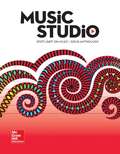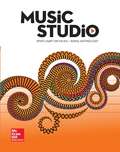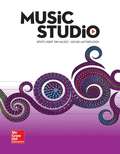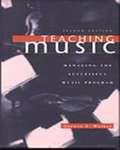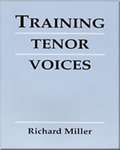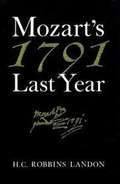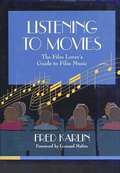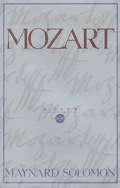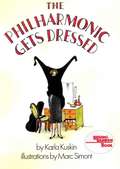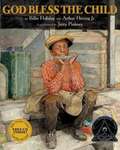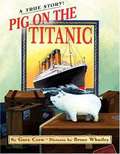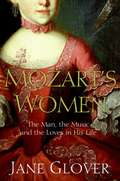- Table View
- List View
Music Studio: Spotlight on Music [Grade 1], Song Anthology (General Music Ser.)
by Judy Bond René Boyer Margaret Campbelle-HolmanNIMAC-sourced textbook
Music Studio: Spotlight On Music [Grade 2], Song Anthology (General Music Ser.)
by Judy Bond René Boyer Margaret Campbelle-HolmanNIMAC-sourced textbook
Music Studio: Spotlight On Music [Grade 3], Song Anthology (General Music Ser.)
by Judy Bond René Boyer Margaret Campbelle-HolmanNIMAC-sourced textbook
Music Studio: Spotlight on Music [Grade 4], Song Anthology (General Music Ser.)
by Judy Bond René Boyer Margaret Campbelle-HolmanNIMAC-sourced textbook
Music Studio: Spotlight On Music [Grade 5], Song Anthology (General Music Ser.)
by Judy Bond René Boyer Margaret Campbelle-HolmanNIMAC-sourced textbook
Music Studio: Spotlight On Music [Grade K], Song Anthology (General Music Ser.)
by Judy Bond René Boyer Margaret Campbelle-HolmanNIMAC-sourced textbook
Spotlight on Music, Grade 2
by Judy Bond René Boyer Margaret Campbelle-Holman Emily Crocker Virginia Ebinger Mary Goetze John Jacobson Michael Jothen Chris Judah-Lauder Carol King Ellen Mccullough-Brabson Janet Mcmillion Ivy Rawlins Susan Snyder Betsy Henderson Marilyn Davidson Robert Frece Vincent Lawrence Gilberto Soto Nancy MillerNIMAC-sourced textbook
Spotlight on Music, Grade 4
by Judy Bond René Boyer Margaret Campbelle-Holman Emily Crocker Virginia Ebinger Mary Goetze John Jacobson Michael Jothen Chris Judah-Lauder Carol King Ellen Mccullough-Brabson Janet Mcmillion Ivy Rawlins Susan Snyder Betsy Henderson Marilyn Davidson Robert Frece Vincent Lawrence Gilberto Soto Nancy MillerNIMAC-sourced textbook
The Songs of Stephen C. Foster: from His Time to Ours
by William W. AustinWith some elements of biography of Stephen C. Foster, and his simple musical techniques, this book has a pattern that gives more emphasis to poetry, to history, and to cultural contrasts and connections during his time.
Memories: The Autobiography of Ralph Emery
by Ralph Emery Tom CarterMemories is the autobiography of country music star Ralph Emery.
Teaching Music: Managing The Successful Music Program
by Darwin E WalkerThis practical text offers a comprehensive program for organizing and managing the non-instructional functions of a successful music program.
Training Tenor Voices
by Richard MillerThis text presents a combination of historical and pedagogical information on how tenors sing. It emphasizes the special nature of the tenor voice and the proper physiological function leading to the establishment of vocal proficiency.
Beethoven
by Maynard SolomonBiography of the composer with selective bibliography and an index of his compositions
1791: Mozart's Last Year
by H. C. LandonBiography of Mozart's last year, in which he wrote The Magic Flute, La Clemenza di Tito, and the Clarinet Concerto, as well as most of the Requiem.
Schubert: The Complete Song Texts
by Richard WigmoreThis is a complete collection of Franz Schubert's solo songs in German originals with English translations. A small number are in Italian with English translations. Schubert's songs are the most frequently performed of the whole vocal repertoire, and, for many people, the best loved. They range from the very short--lasting barely two minutes--to immensely long ballads, and scenas which are virtually cantatas. Schubert was among the most prolific of composers, having written (in addition to a large output of symphonies, sonatas, quartets, masses and operas) more than 600 songs by the time of his death in 1828 at the age of 31. Almost all his songs are settings of German poetry, but a few use Italian words, and the texts of several are German translations of English poetry and prose by Sir Walter Scott, Shakespeare, James Macpherson (Ossian) and others. Schubert composed more than a hundred settings of Goethe, the greatest of all German poets, and many of these are among the finest and best loved of his songs. But he also set the work of other major German poets of the 18th and early 19th centuries. The most famous of the songs have appeared in previously published volumes of Lieder texts, such as The Penguin Books of Lieder and The Fischer-Dieskau Book of Lieder; but more and more, these days, singers are discovering the beauties of the less familiar songs, and adding them to concert programmes and recordings. This book fulfils the growing need for parallel texts and translations of all the songs, and is the first in its field. The prose translations, keeping as close as possible to the originals, are most sympathetic, and readable in their own right, and will be invaluable to the singer with little or no German, as well as a delight to the many music-lovers who listen to these songs on radio, on record and at concerts. This electronic edition is formatted with a line of English translation below each line of German original and is DAISY formatted with each song at level 1.
Listening To Movies: The Film Lover's Guide To Film Music
by Fred KarlinThis text is a lay person's guide to the world of film music, from the silent era to the present day. Oscar-winning film composer Fred Karlin describes how music is written and recorded for the movies; who the composers are and how they work with film makers; and the music itself - what to listen for in a film score, and what makes one score better than another.
Mozart: A Life
by Maynard SolomonThis scholarly 1995 book is more than a biography. It is a psychological portrait of the whole Mozart family, including Leopold, Wolfgang and Marianne. You don't have to be a musician to get into this book. This very readable biography contains a few musical examples but more emphasizes text and facts. It includes a complete list of all of Mozart's works and an analysis of bibliographical resources including how attitudes about Mozart have changed over time. If your view of Mozart was shaped by the Peter Shaffer play and movie, Amadeus,this book may contain quite a few surprises. Was Mozart poisoned? Was he an eternal child?
Kelly 'n' Me
by Myron LevoyFifteen-year-old Anthony falls for Kelly, the mysterious girl whom he meets singing in Central Park and joins to perform street music all over New York, but their romance is threatened by their very different backgrounds.
Mama Don't Allow
by Thacher HurdTOO LOUD! WHAT A RACKET! UNBEARABLE! Why don't you practice outside, dear? Not only Miles' parents, but the whole neighborhood has had enough of Miles' new saxophone! However, when Miles teams up with three other musicians to form the Swamp Band, their music suddenly gets a startlingly different reception. "We love that Swamp Band music!" yell the sharp-toothed, long-tailed, yellow-eyed alligators. "We like it LOUD! Come and play for the Alligator Ball." The Swamp Band is delighted . . . but little do they know what is in store for them after their first all-night jamboree. Every noise-loving child (and noise-hating parent) will revel in Thacher Hurd's funny, jazzy tale inspired by the traditional American song "Mama Don't Allow." Presch-3
The Philharmonic Gets Dressed
by Karla KuskinThe 105 members of the Philharmonic Orchestra get ready for a performance. For children.
Ah, Music!
by Aliki<P>Surveys the history and components of music, concentrating on Western musical traditions. <P>[This text is listed as an example that meets Common Core Standards in English language arts in grades 2-3 at http://www.corestandards.org.]
God Bless the Child
by Billie Holiday Jerry Pinkney Arthur HerzogFirst performed by jazz legend Billie Holiday in 1939, "God Bless the Child" remains one of her enduring masterpieces. In this interpretation, Pinkney depicts a family moving from the South during the Great Migration.
Pig on the Titanic: A True Story
by Gary CrewA pig on a passenger liner? Impossible! No! No! It's me ... Maxixe, the music box pig! Everyone knows the story of the night the great ship Titanic sank. But few know the story of Maxixe, one of the unsung heroes of that night, and how this small musical pig soothed the fears of a lifeboat full of children. Based on true events, this dramatic story by author Gary Crew is told through the charming and compassionate voice of Maxixe.
Toes
by Tor SeidlerAfter getting lost on Halloween night when he is only a few months old, an intelligent seven-toed kitten makes his way into the life of a struggling musician.
Mozart's Women: His Family, His Friends, His Music
by Jane Glover[From the dust jacket:] "Throughout his life, Mozart was inspired, fascinated, amused, aroused, hurt, disappointed and betrayed by women--and he was equally complex to them. But, first and last, Mozart loved and respected women. His mother, his sister, his wife, her sisters, and his female patrons, friends, lovers and fellow artists all figure prominently in his life. And his experience, observation and understanding of women reappear, spectacularly, in the characters he created. As one of our finest interpreters of Mozart's work, Jane Glover is perfectly placed to bring these remarkable women--both real and dramatized--vividly to life. We meet Mozart's mother, Maria Anna and his beloved and devoted sister, Nannerl, perhaps as talented as her brilliant brother but, owing to her sex, destined to languish at home while Wolfgang and their father entertained the drawing rooms of Europe. We meet, too, Mozart's "other family"--his in-laws, the Webers: Constanze, his wife, much maligned by history, and her sisters, Aloysia, Sophie and Josefa. Aloysia and Josefa were highly talented singers for whom Mozart wrote some of his most remarkable music. Aloysia was the first woman whom Mozart truly and passionately loved, and her eventual rejection of him nearly broke his heart. Constanze, though a less gifted singer, proved a steadfast and loving wife and--after Mozart's death--his extremely efficient widow, consolidating his reputation and ensuring that his most enduring legacy, his music, never be forgotten. Mozart's Women is their story. But it is also the story of the women in his operas, all of whom were--like his sister, his mother, his wife and his entire female acquaintance--restrained by the conventions and strictures of eighteenth-century society. Yet through his glorious writing, he identified and released the emotions of his characters. Constanze in Die Entführung aus dem servil; Ilia and Elettra in Idomeneo; Susanna and the Countess in le mozze di Figaro; Donnas Anna and Elvira in Don Giovanni; Fiordiligi, Dorabella and Despina in Così fan tutte; Pamina and the Queen of the Night in Die Zauberflöte: are all examined and celebrated. They hold up the mirror to their audiences and offer inestimable insight, together constituting yet further proof of Mozart's true genius and phenomenal understanding of human nature. Rich, evocative and compellingly readable, Mozart's Women illuminates the music and the man--but, above all, the women who inspired him."
